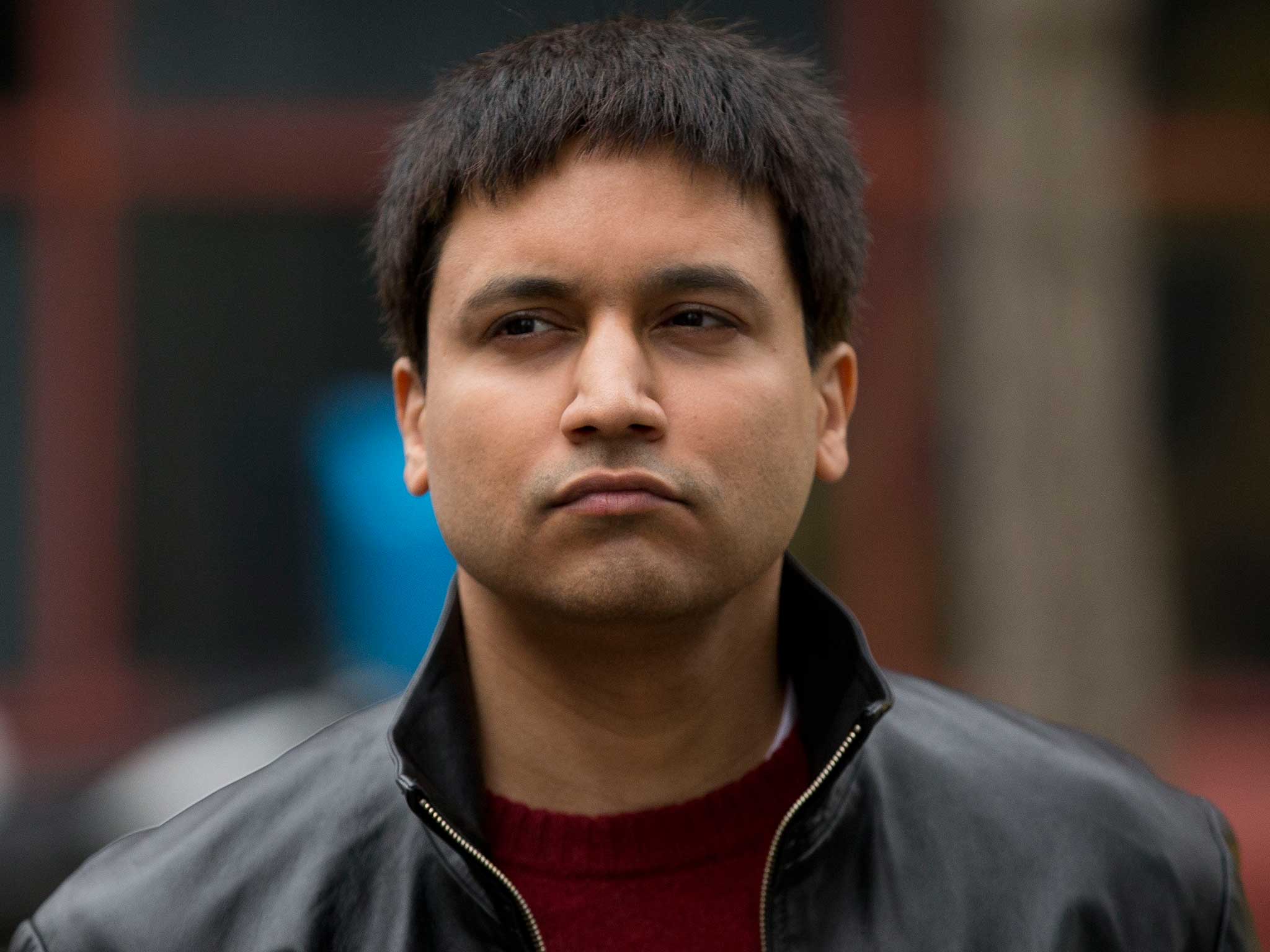Navinder Singh Sarao: ‘Hound of Hounslow’ can be extradited to US, judge rules
Mr Sarao is accused of helping to trigger the Wall Street flash crash

A British financial trader accused of helping trigger a multibillion-dollar Wall Street “flash crash” from his parents’ West London suburban home faces extradition to the United States, a judge has ruled.
Lawyers for Navinder Singh Sarao, 37, said he planned to appeal against the decision if the Home Secretary, Theresa May, approves the ruling for his extradition.
The US authorities have accused Mr Sarao, dubbed the Hound of Hounslow, of placing “false” and “fictitious” orders on the Chicago Mercantile Exchange (CME). They allege he is guilty of spoofing – placing large orders that manipulated the markets and then cancelling or changing them, allowing him to buy or sell at a profit. They claim his spoofing netted him a profit of $40m (£28m). If extradited and convicted the 22 charges he faces carry maximum sentences totalling 380 years.
District Judge Quentin Purdy rejected legal challenges by Mr Sarao’s legal team and ruled on Wednesday that the Londoner could be sent to stand trial in the US, during an extradition hearing at Westminster Magistrates’ Court.
He dismissed claims by Mr Sarao’s defence team that the US had failed to establish that “spoofing” was an offence in the UK. They also ridiculed claims he was responsible for the “flash crash” in May 2010, when the Dow Jones Industrial Average briefly fell more than 1,000 points, temporarily wiping out nearly $1trn in market value, before it recovered. Mr Sarao stopped trading an hour before the market plunged they said.
In a written judgment, the judge said: “Essentially, has the US established that the same actions in this jurisdiction at the same time would be capable of being prosecuted for one or more offences known to the criminal law? This is not the forum for testing the evidence as in a trial. To my mind when all is said and done the US is correct in arguing it has shown dual criminality.” However he also dismissed the suggestion that Mr Sarao’s trading had caused the 2010 flash crash.
“The causes of the flash crash are not a single action and cannot on any view be laid wholly or mostly at Navinder Sarao’s door, although he was active on the day. In any event this is only a single trading day in over 400 relied upon by the prosecution.”
Richard Egan, Mr Sarao’s solicitor, said after the decision: “We are disappointed. We still think we have a strong argument and we will be appealing the decision once the Secretary of State makes her decision. We are very disappointed.”
His lawyers argued that Mr Sarao’s trades “created true liquidity” and did not give a “false or misleading impression”. The former bank worker and financial trader is on bail. Since his arrest, the former Brunel University student has been diagnosed with Asperger’s syndrome.
Marleen Bouwer, a solicitor at the law firm Byrne and Partners, said: “Spoofing is not a specific offence in the UK, as it is in the US.
“However it could be covered by market abuse, which includes ‘behaviour’ which gives or are likely to give a false or misleading impression or secure the price of an investment at an abnormal or artificial level.”
Join our commenting forum
Join thought-provoking conversations, follow other Independent readers and see their replies
Comments